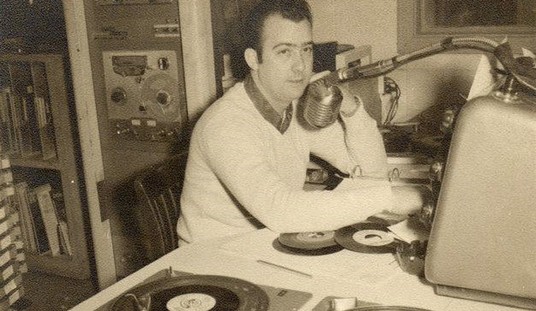This morning I woke up to find one of my distinguished colleagues was raging at dumb conservatives for not liking the Trump-Julius Caesar play.
Her tirade reminded me of a post that I’ve been meaning to write.
Now most conservatives have little patience for literary – or artistic – criticism. We’ve long ago decided that this is enemy territory, and therefore ignore it and go on with the real things of real life.
I’m telling you now it is time to stop that. And I must ask you to bear with me why I explain it’s time to take that beachhead. It’s time to reclaim the culture. And you can’t do that if you concede and internalize the left’s parameters for “good” and “relevant.”
For my sins, I went to an old university, the best in Portugal. Stop snorting. It was very difficult to get into, and it was a branch of the university established in 1290. So it had traditions, rigorous discipline, and of course, Marxism. All the best universities had that!
Through a concatenation of familial and social reasons, I ended up in humanities, and being in humanities, I tried to take the most “real” degree I could, that is, one that had some solid basis in fact: languages. Unfortunately, it came with literature.
Unfortunately, you say? Why so? You are, after all, a writer, so you must love reading.
Of course I love reading. By the time I went to college I had read everything I could get my hands on twice, though I should confess I’d early on run away with the science fiction and fantasy circus.
But literature was just another course on “applied Marxism, this time we’re serious.” I’d had three of those a year in high school, usually sociology, history and either philosophy, psychology or economics. (If you wonder why I despise Marxism: no one can have a brain and be exposed to it OPENLY at that early an age and not see the holes.) But this was more insidious. It wasn’t labeled Marxism. It was just the way things were.
We studied all the writers of the past – all art, really, if you go into our art history and culture classes – in the light of not only how relevant they were politically, but how in tune with current progressive ideas they were.
Writers were good because they were early prophets of what would become Marxist principles. So, Goethe? Showcasing the exploitation of the young and excessive militarization were what made him great. Shakespeare? Well, he was raging at the various injustices of his day and had warnings against tyranny in Richard III and Julius Caesar. Jane Austen? Of course, she was a sort of proto-feminist and probably a lesbian, and raging against the treatment of women and the class system.
Now, I might have swallowed the bilge lock, stock, and barrel — if I’d had a lobotomy. No, I kid. I could have swallowed it, had two things not applied: If I hadn’t already had Marx inflicted on me in doses large enough to form an allergic reaction; and if I didn’t live with a man who collected not just fiction, but books of literary history and criticism. You see, my dad’s degrees were more practical, he felt he was deficient in literature, and he dragged home these books. Myself? I read everything that I could get my hands on. So of course, I’d read those too.
So I knew such utilitarian views of literature weren’t new. In fact, in most places and most times, writers find it expedient to support the status quo and those in power. (And let’s face it, for much of the twentieth century those with the power to advance your career have been Marxists.)
I have a vague idea – though I usually didn’t get that far – that supporting the state or critiquing it was largely the function of Roman literature. In the Middle Ages, you supported feudalism and the church, and that’s what made you good and widely disseminated. Here’s a good example of that kind of book — Piers Plowman — being compared, appropriately enough, to the leading lights in my field.
Most of those books have mercifully vanished from human memory.
After the Renaissance, the hotness became to follow classical forms. There were rebellions against it, such as the romantics who tried almost as many experiments as writers in the sixties. But in general, back at the end of the nineteenth century, we were back to “a good writer” being one who signaled his erudition by writing things that either echoed Rome or had vast, undigested quotations of Latin or Greek works.
And then World War One happened, and the Western world lost confidence in its tradition, at the same time the Marxist worm was starting to gnaw at its roots.
Suddenly the new hotness was a version of what had been hot under the romantics: what Agatha Christie called “unpleasant people doing unpleasant deeds.”
Only now the writers were imbued with new purpose. They were building the wonderful, new communist future of scientific governance.
By the time the Soviet Union collapsed, we had whole careers – whole generations — of literature and art critics invested in Marxism that many of them weren’t even aware was Marxism. They just thought this is the way literature and art had always been evaluated.
The fact that this couldn’t be remotely true – because while Shakespeare did write political plays, most of them have mercifully vanished into nothing; and yes, no one can read Jane Austen without realizing she was a woman of her time – never hit them.
It never occurred to them that real art in literature is judged by the fact that the ideas/characters/plots/emotions induced are so strong they can talk to people across centuries and vast gulfs in beliefs and politics. Like people who have pulled out their eyes, they could no longer appreciate art at an emotional and instinctive level. They had to bring out their rulers and their lists, and make sure it had the prescribed amount of Marxism before they judged it “good.”
Literature that persists and speaks to us but is clearly a critique of Marxism seems to puzzle them. I think they see both Brave New World and 1984 as instruction manuals.
Through careful instruction, they have been robbed of their ability to see “good,” or for that matter to react like normal human beings. Good literature to them is “a critique of society” or “consciousness raising” or “to change the world.”
Gone is the pang of identifying our own teen excesses in Romeo and Juliet; of seeing our own madness in Hamlet; the duality (yes, duality) of morality in Julius Caesar, where Caesar might have been wrong and dangerous, but so are the conspirators. Instead, it’s all projected either onto current events or the canvas of “the great communist future.”
And yet Shakespeare, to quote my friend Charlie Martin, persists. He speaks to people across the centuries and cultures. When I was a child, hearing Romeo and Juliet described, I thought it was a tragedy that had happened in the next village over.
By the way, while what I know best is the path/history of literature, a similar process has gone on in the arts. We all have heard jokes about how the little card describing the relevance of the art seems more important than the art itself. Others have written about this insanity.
Why should you care? Because as long as you don’t, the Marxist view of what is “good” literature or art prevails. This means it is what is taught in schools, what is acquired by museums, the people who are called to speak on any cultural issue, the people who get funding for producing plays or painting public buildings will endorse the Marxist critique of society.
What this means is that the poison is passed on to another generation. It means that poison seeps into the culture.
You might think you don’t care about literature or art, but you do.
Your entertainment is a form of art, and if they aspire to be considered good, right now, it too will be larded with Marxism. You see, the artists/filmmakers/writers, unless they are like me and have stopped caring, have to make the right noises if they want the rewards. That’s why your entertainment is pervasively leftist.
You want to change that, you have to change the parameters it’s judged on. You have to be aware of it.
My own parameters? Ludic. Ludic sounds like it should be forbidden in Peoria, but it actually means “enjoyment” as in a game.
The truth is, we don’t know what true literature or art is until it’s put to the test. Shakespeare and DaVinci, say, can reach across the centuries to touch us at a visceral level. But you can’t know that when you are mired in your own world, in your own society. Which is where the idiots get the idea that what matters is “critique of society.” But, unless you’re a true believer in holy Marxism, who knows how the future will evaluate the past, you can’t be sure that your art will speak to the future.
The only thing we know is that – unlike romantic fables – the artists who speak to us now engaged the imagination and emotion of their own contemporaries. How can you, after all, touch the universally human, if you’re just screaming at the people around you?
So enjoyment is the first cut for what might in the future be considered great literature. Yes, enjoyment is individual, but the more people who enjoy a work, the more people are likely to enjoy it in future generations. Not always, of course. Some works are works of their time. But why fret about it? By that time you’ll be dead and who cares?
Note this makes the artists most worth supporting those who are already making enough money they certainly don’t need public funds. It also sweeps away the clutter of pseudo-art that our cities feel fit to sprinkle across their downtowns. (I remember the stone vagina with the pendulum from Colorado Springs twenty years ago.)
It, in fact, clears a lot of the Marxist cobwebs from our thought, our culture, our unexamined beliefs.
And it might save Western society.
You can’t put the eyes back in the people who have blinded themselves. But you can prevent them from blinding another generation. And it just might cause them to leave Shakespeare alone.
Go forth and spread the word: art doesn’t need to be useful, or a critique of society; art certainly doesn’t need to be Marxist. All such distortions, usually to pander to power, are distortions of the artistic impulse. Art is that which speaks to the essential humanity in us, and binds us together across the ages and the cultures.
And the first step to doing that is to be enjoyable now. No more Piers Plowman. No more Soviet Socialist Realism. Let us evaluate art by ludic enjoyment. And let us have fun.









Join the conversation as a VIP Member